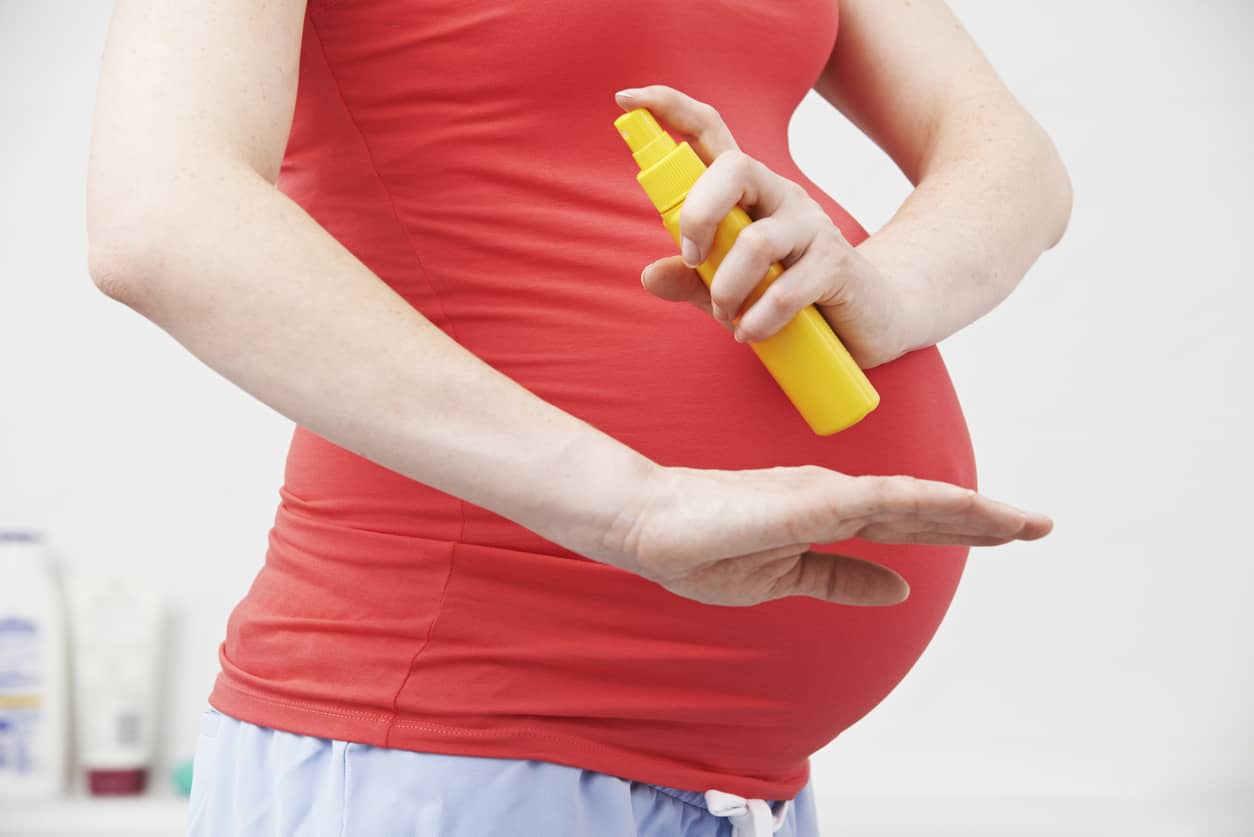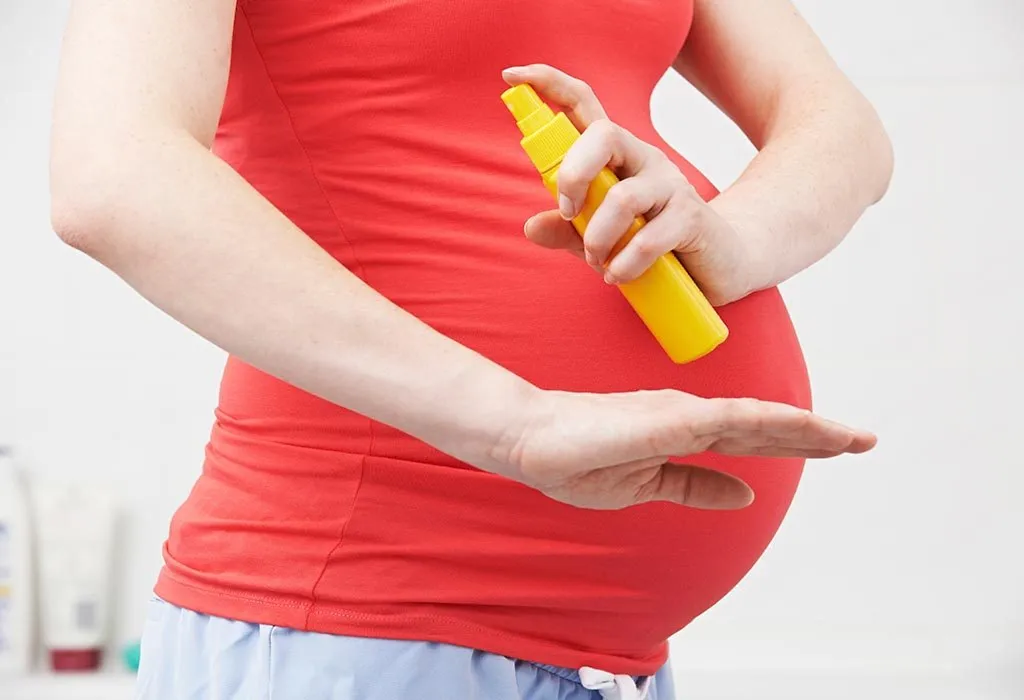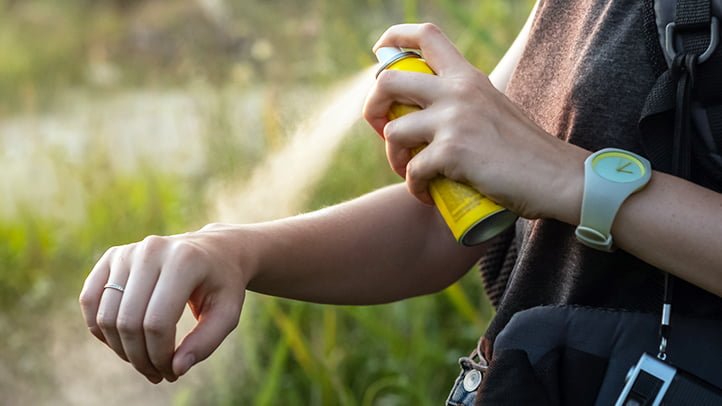It is safe to use mosquito repellent during pregnancy if used as directed. EPA-registered repellents are proven safe.
Mosquitoes can be a nuisance, especially during pregnancy when the risk of mosquito-borne illnesses can have serious consequences. Many pregnant individuals wonder if using mosquito repellent is safe for them and their baby. The good news is that when used correctly, EPA-registered insect repellents are considered safe for pregnant women.
However, it is essential to follow the instructions on the product label and take necessary precautions, such as wearing long-sleeved clothing and treating gear with permethrin. Let’s delve deeper into the safety aspects of using mosquito repellent during pregnancy to help you make an informed decision for a mosquito-free and worry-free experience.
Introduction To Mosquito Repellents And Pregnancy
Mosquitoes are not only irritating pests, but they also pose a significant health risk, particularly to pregnant women. As the concern about mosquito-borne diseases continues to rise, it’s important to address the use of mosquito repellents during pregnancy. In this article, we will explore the importance of using repellents during pregnancy and address the rising concerns about mosquito-borne diseases.
Rising Concerns About Mosquito-borne Diseases
With the increasing prevalence of mosquito-borne diseases such as Zika virus, dengue fever, and chikungunya, pregnant women are understandably worried about the potential risks to their health and the health of their unborn babies. Mosquito-borne diseases can have serious consequences for pregnant women, making it crucial to take proactive measures to prevent mosquito bites.
Importance Of Repellents During Pregnancy
Using mosquito repellents during pregnancy is essential to minimize the risk of mosquito bites and the potential transmission of diseases. While there may be concerns about the safety of repellents, it’s crucial to note that when used as directed, Environmental Protection Agency (EPA)-registered insect repellents are proven safe and effective even for pregnant and breastfeeding women.

Credit: quantumhealth.com
Types Of Mosquito Repellents
Using mosquito repellents during pregnancy is generally considered safe when applied as directed. EPA-registered repellents are proven effective for pregnant women. It’s also recommended to wear long clothing and treat gear with permethrin for added protection. Additionally, avoiding pesticides and insecticides during the first trimester is advised for the baby’s neural development.
Types of Mosquito RepellentsWhen it comes to protecting yourself from mosquito bites, there are various types of mosquito repellents available in the market. However, it is important to know the safety of these repellents during pregnancy. In this article, we will discuss the different types of mosquito repellents that are commonly used and their safety during pregnancy.Chemical-based repellents: DEET, PicaridinChemical-based mosquito repellents contain active ingredients such as DEET (N,N-diethyl-meta-toluamide) and picaridin. DEET is one of the most effective mosquito repellents available in the market. It is recommended by the Centers for Disease Control and Prevention (CDC) for pregnant women, but it should be used in low concentrations (less than 30%) and applied sparingly. Picaridin is another chemical-based repellent that is considered safe during pregnancy. It is less likely to cause skin irritation compared to DEET and has a pleasant odor.Natural repellents: Citronella, Essential oilsNatural mosquito repellents are a safer alternative to chemical-based repellents. Citronella is a common natural repellent that is derived from the leaves of lemongrass plants. It is available in the form of candles, lotions, and sprays. Essential oils such as lavender, peppermint, and eucalyptus are also known to have mosquito-repelling properties. However, it is important to note that natural repellents are not as effective as chemical-based repellents and need to be reapplied more frequently.Electronic and ultrasonic repellentsElectronic and ultrasonic mosquito repellents are devices that emit high-frequency sound waves to repel mosquitoes. These devices are considered safe during pregnancy as they do not contain any chemicals. However, their effectiveness is questionable and they may not work for all types of mosquitoes.In conclusion, it is safe to use mosquito repellents during pregnancy, but it is important to choose the right type of repellent and use it as directed. Chemical-based repellents such as DEET and picaridin are effective and safe when used in low concentrations. Natural repellents and electronic/ultrasonic repellents are also safe, but may not be as effective as chemical-based repellents. Always consult with your healthcare provider before using any mosquito repellents during pregnancy.Safety Profile Of Deet For Pregnant Women
Deet Concentration Recommendations
For pregnant women, it is recommended to use mosquito repellents containing 10% to 30% DEET concentration for optimal effectiveness.
Research On Deet’s Safety During Pregnancy
- Studies show that when DEET-based repellents are used as directed, they are considered safe for pregnant women.
- Research indicates that DEET does not increase the risk of birth defects when applied correctly.
- Experts suggest that DEET is safe to use during pregnancy, especially in areas with high mosquito activity.

Credit: m.youtube.com
Efficacy Of Natural Repellents
The efficacy of natural repellents, particularly plant-based alternatives, during pregnancy has been a topic of interest for expectant mothers. Many are concerned about the potential risks associated with using chemical repellents and are seeking safer alternatives to protect themselves from mosquito bites.
Effectiveness Of Plant-based Alternatives
Plant-based alternatives have gained popularity due to their perceived safety and minimal impact on the environment. Essential oils such as citronella, lavender, eucalyptus, and peppermint have been touted for their natural repellent properties. While these alternatives are generally considered safe, their efficacy in repelling mosquitoes during pregnancy may vary.
It’s important to note that the effectiveness of plant-based alternatives may be influenced by various factors such as concentration, application method, and individual sensitivity. Additionally, the duration of protection provided by natural repellents may differ from that of chemical counterparts.
Comparing Efficacy With Chemical Repellents
When comparing the efficacy of natural repellents with chemical alternatives, it’s essential to consider the active ingredients and their respective concentrations. While chemical repellents like DEET, picaridin, and IR3535 have been extensively studied and proven to provide long-lasting protection against mosquitoes, some expectant mothers may have concerns about their potential impact on pregnancy.
Studies have shown that when used as directed, DEET-based repellents are considered safe for pregnant women and their unborn babies. However, it’s crucial to adhere to the application guidelines provided by the Environmental Protection Agency (EPA) to minimize any potential risks.
Guidelines For Using Repellents Safely During Pregnancy
During pregnancy, it’s important to take extra precautions when using mosquito repellents to ensure the safety of both the mother and the unborn child. Here are some guidelines to follow for using repellents safely during pregnancy:
Best Practices For Application
- Apply mosquito repellents containing DEET, picaridin, IR3535, or oil of lemon eucalyptus (OLE) to exposed skin or clothing, following the product instructions carefully.
- Use permethrin-treated clothing and gear for added protection against mosquitoes.
- Reapply repellents as directed, especially if you are spending extended time outdoors or engaging in activities that may cause excessive sweating.
- When applying repellents on the face, spray it on your hands first and then gently apply, avoiding the eyes and mouth.
Precautions To Avoid Overexposure
- Avoid applying repellents to areas of the skin that are already irritated or injured, and do not use under clothing.
- Do not use products containing both sunscreen and repellent, as sunscreen should be reapplied more often than repellent.
- Wash treated skin and clothing with soap and water after returning indoors.
- Avoid using concentrated products with high DEET concentrations, and opt for lower concentrations if possible.
Impact Of Mosquito Repellents On Pregnancy Outcomes
When it comes to the impact of mosquito repellents on pregnancy outcomes, it is important for expectant mothers to be cautious about the products they use. Let’s delve into the effects of mosquito repellents on both the mother and the child.
Studies On Birth Defects And Repellent Use
- Based on limited studies, insect repellents used as directed are not linked to increased birth defects.
- DEET, a common ingredient in repellents, has shown no significant adverse effects on pregnancy outcomes.
- It is advisable for pregnant women to follow usage instructions carefully for safety.
Long-term Effects On Mother And Child
- Long-term effects of repellents on mother and child are not extensively studied.
- Choosing natural or DEET-free alternatives may provide peace of mind for expecting mothers.
- Consulting with a healthcare provider before using repellents during pregnancy is recommended.
Alternative Mosquito Control Techniques
Explore alternative mosquito control techniques to ensure safety during pregnancy, such as citronella candles or essential oils. Avoiding chemical repellents is advisable, but if needed, opt for DEET-free options. Prioritize wearing protective clothing and using natural methods to minimize exposure risks.
Preventive Measures To Reduce Mosquito Exposure
During pregnancy, it is important to reduce the exposure to mosquitoes to avoid the risk of mosquito-borne illnesses. One of the easiest ways to do this is to eliminate any standing water around your home, as mosquitoes breed in stagnant water. Additionally, you can use screens on doors and windows to keep mosquitoes out of your home.Clothing And Physical Barriers
Wearing protective clothing can also help reduce mosquito bites. Long-sleeved shirts and pants can provide a physical barrier to prevent mosquitoes from biting your skin. Additionally, you can use mosquito nets while sleeping to further protect yourself from mosquito bites.Using Alternative Mosquito Repellents
If you are concerned about using mosquito repellents during pregnancy, there are alternative options available. Essential oils such as citronella, lavender, and eucalyptus have been shown to have mosquito-repelling properties. Additionally, you can use a fan to keep mosquitoes away as they are weak fliers and cannot withstand strong winds.While using mosquito repellents during pregnancy is generally considered safe when used as directed, it is important to take precautions to reduce mosquito exposure. By using preventive measures, protective clothing, and alternative mosquito control techniques, you can reduce the risk of mosquito bites and mosquito-borne illnesses during pregnancy.Expert Opinions And Recommendations
Expert opinions and recommendations play a crucial role in guiding pregnant women on the safe use of mosquito repellents. Healthcare providers and health organizations offer valuable insights and guidelines to ensure the well-being of both the expectant mother and the unborn child. Let’s explore the latest advice and recommendations from experts in the field.
Healthcare Providers’ Advice On Repellent Use
Healthcare providers often emphasize the importance of using EPA-registered insect repellents, which have been proven to be safe and effective for pregnant women when used as directed. They recommend wearing long-sleeved shirts and long pants for additional protection against mosquito bites. Furthermore, treating clothing and gear with permethrin or purchasing permethrin-treated items is encouraged to enhance the effectiveness of mosquito repellents.
Latest Guidelines From Health Organizations
According to the Centers for Disease Control and Prevention (CDC), EPA-registered insect repellents are deemed safe and effective even for pregnant and breastfeeding women when used as directed. The CDC also advises pregnant women to avoid using pesticides or insecticides, especially during the first trimester when the baby’s neural tube and nervous system are developing. Additionally, the CDC emphasizes the importance of following product directions for safe and effective application of mosquito repellents.

Credit: parenting.firstcry.com
Frequently Asked Questions
Which Mosquito Repellent Is Safe For Pregnancy?
Choose EPA-registered insect repellents for a safe choice during pregnancy.
What Happens If You Use Deet While Pregnant?
Using DEET while pregnant is generally safe when applied as directed, following EPA guidelines.
What Can I Put On Mosquito Bites During Pregnancy?
To relieve mosquito bites during pregnancy, apply a cool compress, baking soda paste, or calamine lotion for itching. Avoid pesticides and opt for EPA-registered insect repellents when outdoors.
Conclusion
Using EPA-registered mosquito repellents during pregnancy is safe and effective. It’s important to follow guidelines for application and wear protective clothing. Avoiding pesticides and insecticides is recommended, especially in the first trimester. Protect yourself and your baby by taking necessary precautions against mosquito bites.
Related posts:

I’m MD Tanvir, and I bring years of expertise gained from working closely with pest control companies to the forefront. My journey in the industry has inspired me to launch Bug Battler, a platform aimed at equipping people with the know-how to combat pests autonomously. Through Bug Battler, I aim to empower individuals with practical insights to tackle pest infestations effectively.

